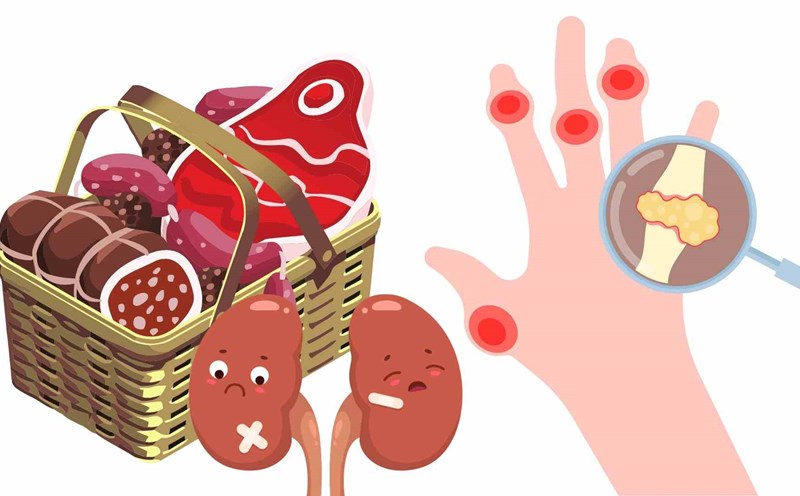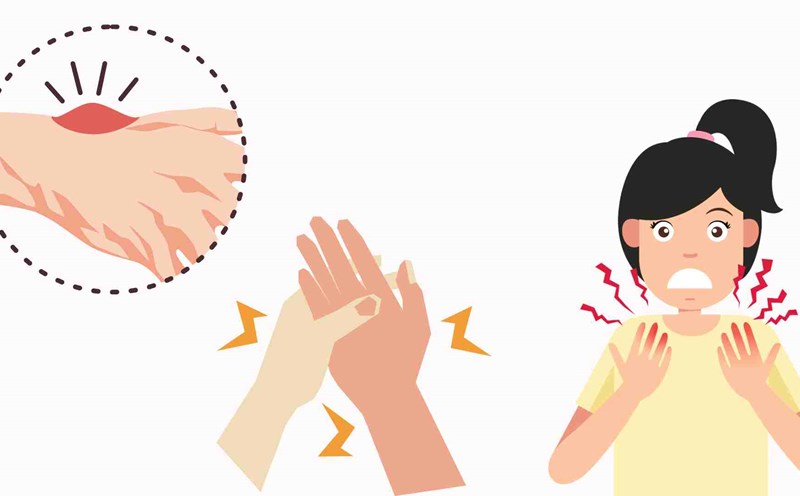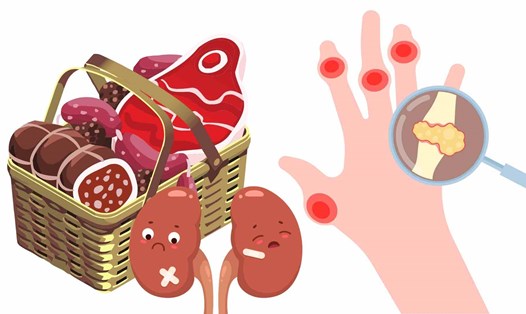Muscle pain is not always the result of exercise or sports injuries alone. If you are accompanied by unusual symptoms, you should pay attention to atherosclerosis - a condition in which the atherosclerosis is rapidly damaged, causing dead muscle cells and proteins such as myoglobin to leak into the blood. When excreted in urine, myoglobin causes urine to turn dark red or brown, an important sign to recognize the disease.
Diabetic Respondency can occur for many different reasons. Most commonly, overtraining is marathon running, high-intensity weight training, severe injuries due to accidents, electrical short circuit, high fever, viral infection or heat impact. Other factors include drug, alcohol, addictive substances, or electrolyte disorders such as potassium reduction, phosphorus reduction. Some cases also stem from congenital genetic diseases.
Moles and spleen disease can lead to severe kidney failure. Due to muscle damage, the affected area is often weak, painful, and even severe pain. In mild cases, the condition can feel like pain from a sports injury, while in severe cases, it can cause persistent cramps. Therefore, patients often confuse it with sports injury or cramps. However, unlike regular muscle strain, symptoms cannot be improved by the use of patches, painkillers or other products.
More dangerously, myoglobin secreted from the muscles can damage the kidneys. If not treated promptly, the patient is at risk of reduced urine output, acute kidney failure, electrolyte disorders such as potassium expansion or increased phosphorus, leading to arrhythmia, even life-threatening.
Therefore, after exercising at all costs, if you experience three simultaneous signs of abnormal muscle pain, muscle weakness and dark red urine, you should see a doctor as soon as possible for timely diagnosis and treatment.











